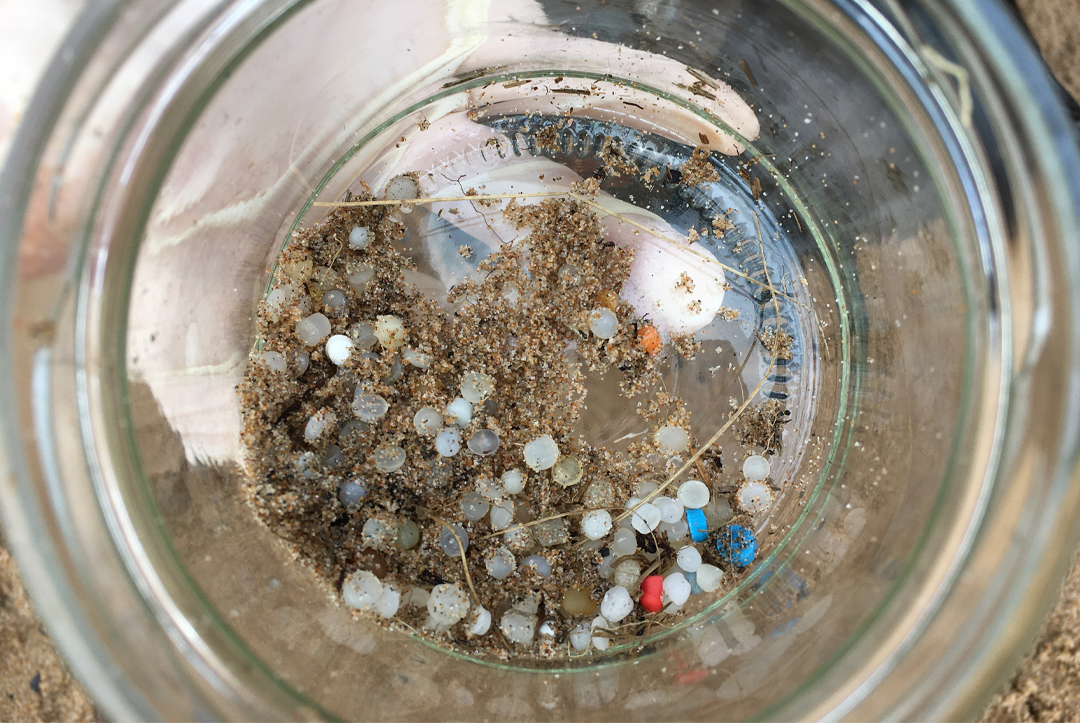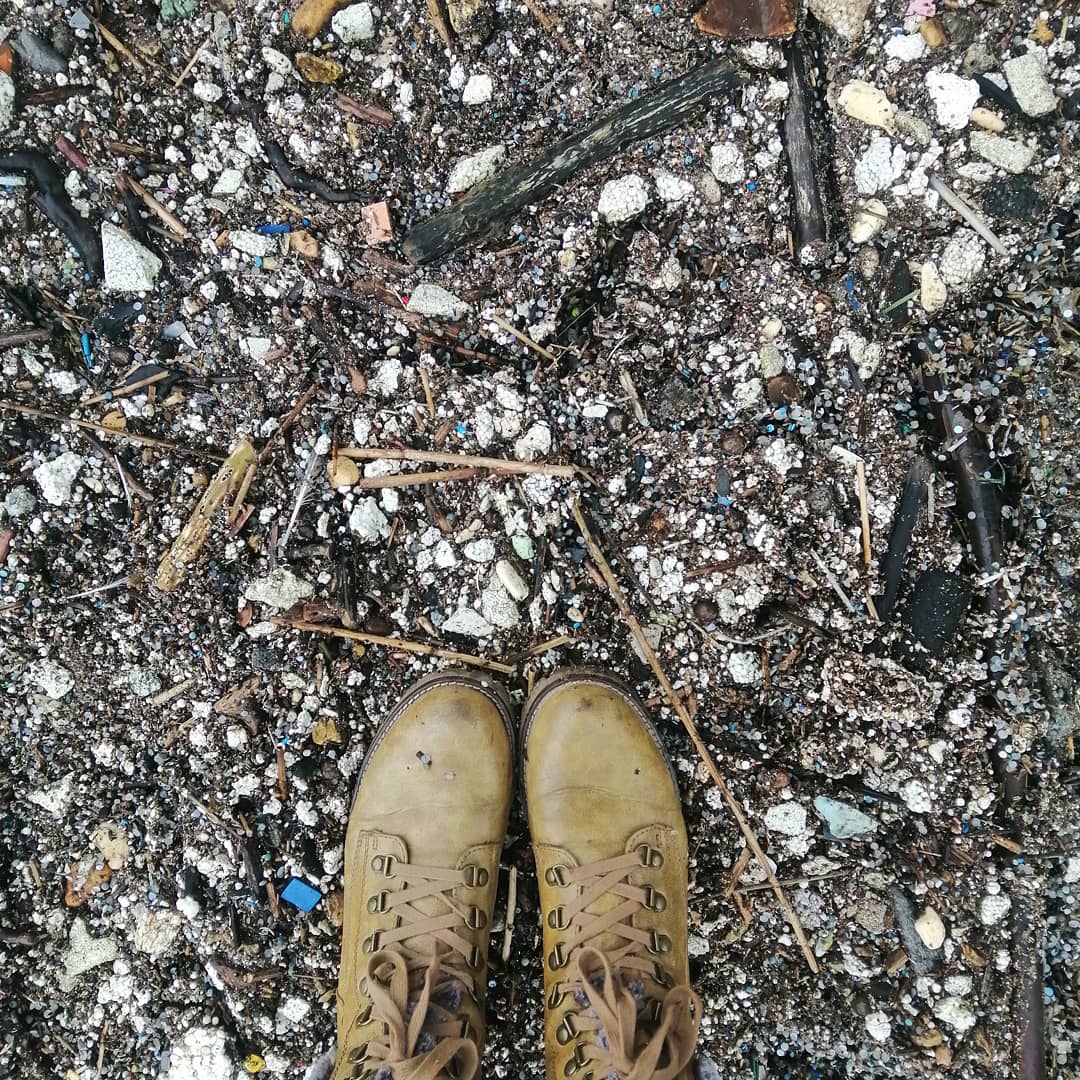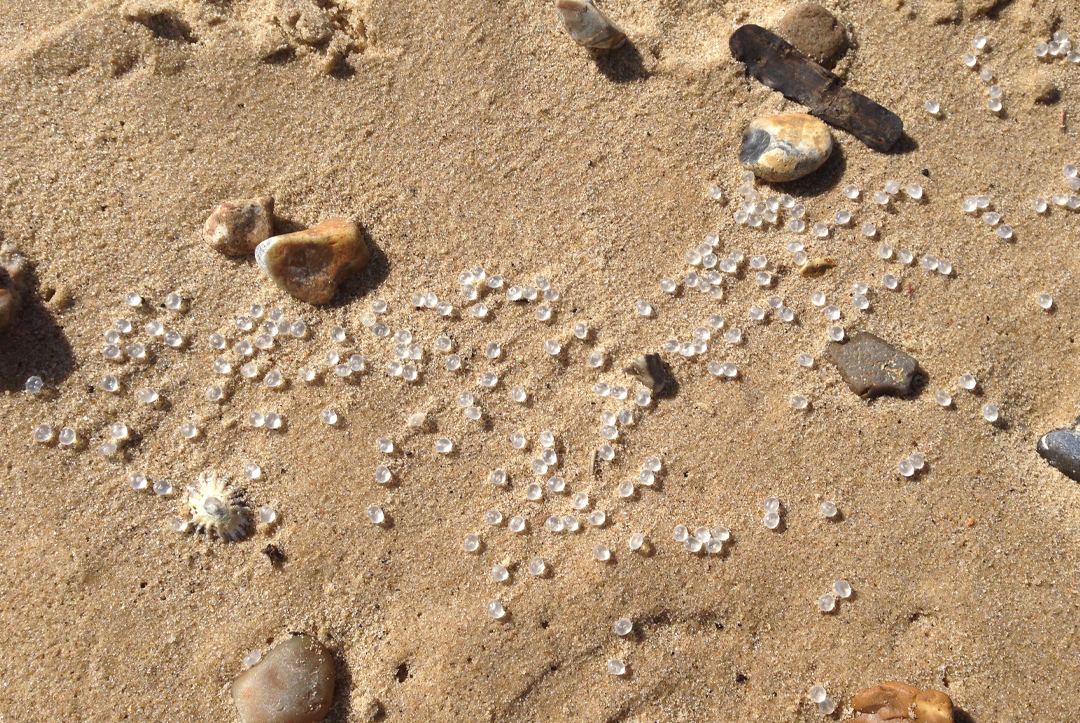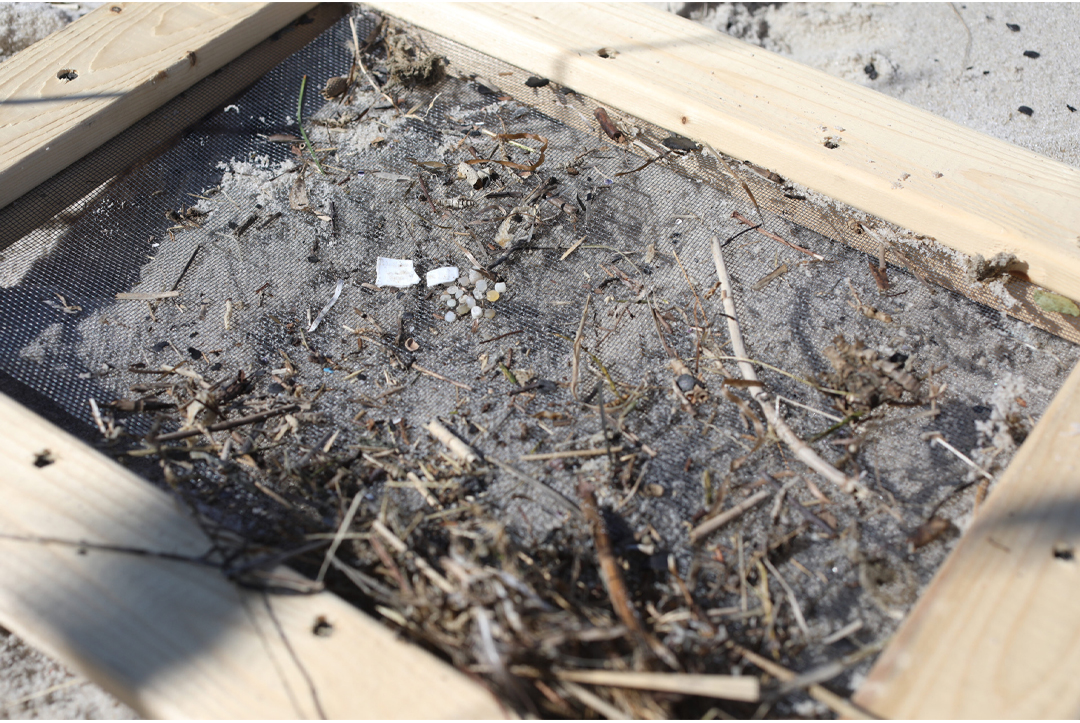More action
Submitted your data but want to do more? Find out how you can take more action.

Nurdles collected on the East Coast of Scotland, UK. Photo credit: Crawford P / East Grampian Coastal Partnership
By taking part in The Great Nurdle Hunt and submitting your finds to our map, you are continuing to help hold industry to account. This data builds evidence of ongoing pellet (or nurdle) pollution which keeps pressure on industry to improve the way they handle pellets. Your participation also shows that people care about this issue.
But what can you do if you want to do more?
Search, submit, share
The Great Nurdle Hunt project runs all year round.
You can take part anywhere, anytime.
If you have already submitted data, one of the best things you can do is to continue to search, submit and share your findings. The more data we have, the clearer the picture is of current and ongoing nurdle pollution.
Perhaps you could search in a new area, fillin the gaps on our map, or monitor a spot close to you by searching there regularly.
Clear photos highlighting the impact of pellet pollution are particularly helpful, too. So why not take photos of your finds and share a few photos with us?
Remember whenever you see nurdles polluting the environment record them on our online map by using the submit your finds page.
Report pollution to regulators
|
Whilst nurdling if you come across pollution, such as a large nurdle spill or nurdles polluting the environment, you can also report it to your local environmental regulator (e.g. the Environment Agency, SEPA, or USEPA). Once you have submitted your data to our online map, you can also share this information with other relevant parties. You can do this with any nurdle pollution you find, but if you come across a particularly large amount of nurdles or fresh-looking nurdles, we would recommend you report these pollution events to your local environmental regulator. You can also contact these agencies if you have any concerns about water pollution in your local area or want to report a water pollution incident, such as nurdle pollution. |
Fresh spills
Though plastic doesn’t break down in the environment, it can fragment and break up into smaller pieces. Nurdles can become weathered over time due to exposure to oxygen, sunlight and the action of the sea, wind and rain. Brightly coloured nurdles become duller and clear nurdles become more opaque and yellow with age.
Nurdles also become more rounded and smaller over time.
If you find particularly clear, bright or clean nurdles, and where all nurdles found look like they might come from the same ‘batch’, they are more likely to be from more recent spills

Millions of nurdles accumulating in Chessel Bay, Southampton, UK. Photo Credit: Katrina A / @Treenbeachcleans

Fresh looking nurdles on the Norfolk coastline suggest a recent spill nearby. Photo credit: Sarah L / The Great Nurdle Hunt
Large spills
All nurdle spills are unacceptable and we are calling for all pellets to be handled responsibly so that none end up in our environment.
However, where you find more than 1000 nurdles in one place we would suggest this is a large enough pollution event to report to your local environment agency, especially if it looks fresh too. Obviously, any time you see nurdles in the environment, please record them on our map as a priority.
** If you spot a fresh pellet spill at the side of the road or outside industrial facilities then please notify your local council or regulator. They may be able to arrange a clean-up before the pellets can travel further into the environment.
In the UK
|
Where you have witnessed or seen an environmental incident, such as a large or fresh nurdle spill, across Scotland, England, and Northern Ireland you can contact the UK pollution hotline at any time, 24 hours a day: 0800 80 70 60 In Scotland, you can also submit reports online to the Scottish Environment Protection Agency (SEPA), via this link: https://www2.sepa.org.uk/EnvironmentalEvents In England, the dedicated regulator is the Environment Agency. Find out more about reporting any pollution or waste incidents at https://www.gov.uk/report-an-environmental-incident In Northern Ireland you can contact the Northern Ireland Environment Agency (NIEA). In addition to the pollution hotline, they provide a dedicated emergency pollution email address for pollution issues that are not urgent or require immediate attention: In Wales, you can contact Natural Resources Wales to report an environmental incident by calling their 24 hour incident number: 0300 065 3000 |
What information to provide?
In much the same way as you reported your findings to us, you will need to provide similar details:
- Where is / was the incident taking place? Please provide an accurate location or description – you can note the latitude/longitude given when you drag and drop the pin on our Nurdle Map submission form.
- What happened? Give details of the pollution event. Did you observe the spill direct from a site or are you seeing pellets wash up on the beach?
- Do you know who is / was responsible for the incident?
- When did the incident take place?
When reporting these nurdle spilla, it would be advisable to take a note of the reference number you are given and request feedback to ensure that you get a call back from a local contact, and to allow you to follow up at a later stage.

Nurdle sieving device used in New Jersey, USA. Photo credit: Kyle G / Alliance for A Living Ocean
Outside of the UK
When you see a large or fresh spill outside of the UK, make sure you log it on our nurdle map using our submission form, as usual.
To take things further, you can check out our supporters page to see if there is an organisation working on this issue near you. Contact them to see if you can work together to highlight the issue of nurdle pollution to the relevant authorities.
You could also contact your local environment agency or other local regulators where appropriate.
Consultations
Here you can find links to current consultations of relevant topics. You can submit a response and help provide information on nurdle spills, pollution events, efforts you are taking to prevent or clean up plastic waste or pollution, and what you feel needs to be done to address these issues.
You can find more information on our work towards a solution to nurdle pollution here.
Current consultations:
ECHA Microplastic Restrictions - European Consultation
In January 2019, ECHA proposed a wide-ranging restriction on intentional uses of microplastics in products placed on the European market to avoid or reduce their release to the environment.
Nurdles (or ‘microplastic handled at industrial installations’) are currently being considered under the reporting and labelling requirements of this restriction, meaning companies will have to provide information about pellet losses to regulators, and include information about handling and disposal of pellets on packaging.
A consultation about the socio-economic impacts of this restriction is set to open in July 2020.
To respond follow this link: https://echa.europa.eu/hot-topics/microplastics
Environment Agency – Challenges and Choices Consultation - English Consultation
A consultation by the Environment Agency is currently open and receiving input on the challenges and choices around protecting the water environment. There are a number of questions on plastic pollution specifically.
To respond follow this link: https://consult.environment-agency.gov.uk/environment-and-business/challenges-and-choices/consultation/